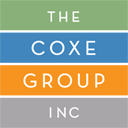It’s not about one solution. It’s about providing critical information to help you make the right decision for your firm.
Increasing a Firm’s Batting Average
A long-established firm with a strong presence in its market sectors experienced an alarming drop in its success rate at interviews. Since most of its work was in institutional sectors, interview success was hand-in-hand with the firm’s success. We were asked to help.
We learned that the firm enjoyed respectable success in getting short listed – about 60 percent – yet at interviews, it was less than 10 percent successful. With short lists averaging five firms, all of whom clients believe to be equally capable of doing the work (or they wouldn’t have been on the short list), it was reasonable to think the firm would win one in five.
We started the assignment by reviewing the firm’s marketing and selling efforts. We learned that its proposals were graphically very good, a consequence in part of a portfolio of good work excellently photographed. Through some market research, we learned that the firm was respected more for its track record than for its current responsiveness to clients. The firm’s proposal reinforced this view, with the firm’s typical proposal not indicating a great deal of attention to the client, addressing almost completely issues related to the project.
With this background, we developed a coaching approach. We began by interviewing individuals in the firm involved with the proposal writing and interview processes.
We learned the extent of research they conducted associated with each pursuit, which told us what they knew as well as what they didn’t know. It turned out that proposal interview strategies were pretty good, based on what they knew, but the problem was what they didn’t know.
Most of their competing firms were better informed about client and project situations, with the result being that competitors had, to state it directly, better strategies. Turning specifically to the interviews, we concluded that the firm’s interview delivery was good, but the firm fell short when it came to delivery content. Similarly, we learned that the graphics of visuals at interviews were very good and appropriate to the interviewers, but they lacked emphasis on the things that were most important to the client in each situation.
Our role in the training had four foci:
- Strategy research. We helped them understand the kind of information that would be helpful to have and how to get it. They realized that if they were unable or unwilling to conduct good research, in most cases they were better off deciding not to pursue the project.
- Strategy development. Our role was to help them shape strong sales strategies, based on the strategy research.
- The interview itself. We helped them develop and rehearse interview strategies, including visuals and other materials that could strengthen the interview.
- We helped them develop the ability to critique their interview preparations internally so that they wouldn’t become dependent on outside resources.
The results were satisfying. By addressing the strategy research and strategy development issues, they increased not only their interview success, which was our mandate, but also their proposal success, with the short list rate climbing to 70 percent. Their success at interviews over the next two years climbed to 35 percent, well better than the 20 percent that had been targeted.
Our coaching involvement diminished thereafter, as they learned how to rely on each other for interview critique and guidance, although we continue to provide “refresher coaching,” usually on particularly significant interviews.
Some observations:
- More often than not, interview content warrants attention before worrying about interview style.
- Improving proposal process often improves interview process, and vice versa.
- It helps to develop and utilize capabilities within the firm for ongoing interview coaching.
Deep industry expertise
The Coxe Group is not one or two consultants — but a group of 10-plus who together bring more than 300 years of experience in organization management, financial management, marketing, personnel management, and behavioral science. Many of us are registered professionals in the fields we serve. Some of us have carried responsibilities as principals and managers.
Our richness comes from our diversity. And our strength comes from our collaboration. With such a broad base, we can address collectively all the issues surrounding a firm’s goals, plans, structure, people, and finances. When you work with The Coxe Group, you have access to this entire resource.
Today’s increasingly complex organizations need to be skillfully led and managed to endure. We are proud to be in the forefront of those who have responded to these leadership and management needs and advanced the state of the art.




